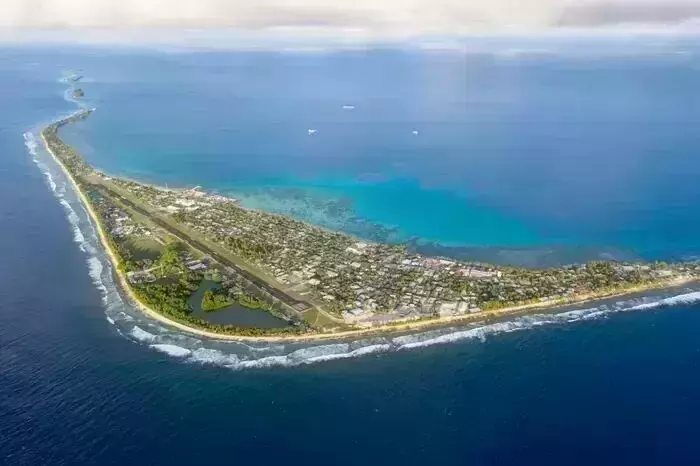
Sinking Pacific island nation to join Metaverse to preserve its history
text_fieldsA tiny Pacific island nation Tuvalu is planning to build a digital version of it on Metaverse to preserve its history and culture. The landmass is at risk of sinking due to rising sea levels and climate crises.
Tuvalu's Foreign Minister Simon Kofe told the COP27 climate summit that it is time to look for alternative solutions for the country's survival. "Our land, our ocean, our culture are the most precious assets of our people, and to keep them safe from harm, no matter what happens in the physical world, we will move them to the cloud. The idea is to continue to function as a state and beyond that to preserve our culture, our knowledge, our history in a digital space."
Tuvalu is a group of nine islands located between Australia and Hawaii. Up to 40% of its capital district is submerged during high tide. Climate experts say the entire country will be underwater by the end of the century. Around 12,000 people live on these islands.
The Metaverse plan is for a future in which the islands are underwater but Tuvalu can still function as a state. Kofe said it is important as the government begins efforts to ensure that Tuvalu continues to be recognised internationally as a state. Its maritime boundaries and resources are maintained even after the sea takes the landmasses. He added that seven governments have agreed to continue to recognise Tuvalu but there are challenges as it is a new area for international law.
The idea is to replicate islands and landmarks on Metaverse using augmented and virtual reality. In the video, Kofe was seen standing on a digital replica of an islet threatened by the sea. Last year, he addressed the conference standing knee-deep in the sea.
He said Tuvalu is having to take such steps because countries across the world are not doing enough to prevent climate change. If digitised, Tuvalu will be the first country to replicate itself in the Metaverse. The City of Seoul and the island nation Barbados announced last year that they would join the VR platform to provide administrative and consular services.























